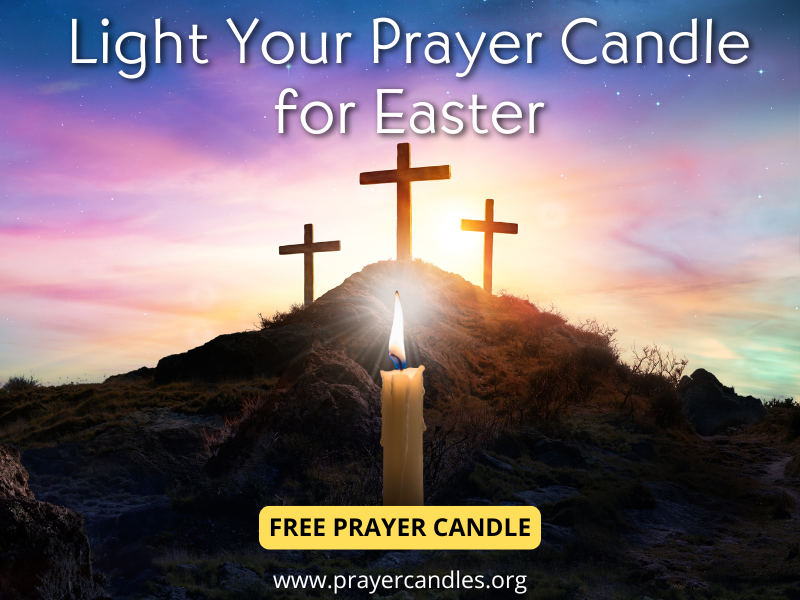We ask you, urgently: don't scroll past this
Dear readers, Catholic Online was de-platformed by Shopify for our pro-life beliefs. They shut down our Catholic Online, Catholic Online School, Prayer Candles, and Catholic Online Learning Resources essential faith tools serving over 1.4 million students and millions of families worldwide. Our founders, now in their 70's, just gave their entire life savings to protect this mission. But fewer than 2% of readers donate. If everyone gave just $5, the cost of a coffee, we could rebuild stronger and keep Catholic education free for all. Stand with us in faith. Thank you.Help Now >
Pope Francis exposes the GREAT LIE in 'right to die' doublespeak
FREE Catholic Classes
Pope Francis took on the issue of the infamous "right to die" campaign and described the entire movement as "peddling a great lie." He delivered his remarks earlier this month, in anticipation of the 2015 World Day of the Sick which will be on February 11.
Highlights
Catholic Online (https://www.catholic.org)
12/31/2014 (1 decade ago)
Published in Living Faith
Keywords: Pope Francis, euthanasia, abortion, life, right to life, right to die, language, misdirection, Orwellian
LOS ANGELES, CA (Catholic Online) - Next year, on the feast day of Our Lady of Lourdes, the Church will celebrate the World Day of the Sick and Pope Francis will deliver a special message. In anticipation of this coming day, Pope Francis wrote some important comments, which you may read below in their entirety.
"How a great lie lurks behind certain phrases which so insist in the importance of 'quality of life' that they make people think that lives affected by grave illness are not worth living," Pope Francis wrote.
Pope Francis is addressing the Orwellian aspect of the language of evil. Words are twisted until they lose their meaning and language is used to misdirect. The effect of repetition is subtle, but profound. The aghast horror of suicide is covered by the sanitized phrase "right to die," which automatically casts anyone who defends life in the role of an oppressor. Such subtle verbiage makes fighting for what's right feel wrong.
This is the same evil tactic used to undermine all pro-life campaigns. We stop talking about a child's right to life, and start talking about "a woman's right to choose." To choose what exactly? The life and death of a child.
The truth of the thing is so horrifying that anyone who understands it is immediately repulsed by the thought. Who, in their right mind, with a properly formed conscience, could ever be a party to the murder of a child? Likewise, could that same person be a party to the murder of an adult?
We must cast aside the evil of deceptive language to expose the truth.
Just like "the right to choose" is code for the right to choose to kill a child, phrases like "the right to die" is code for the right to choose abortion for the infirm and elderly. We have, in fact, simply taken the next logical step forward following the legalization of abortion.
The value of a human life is inherent, bestowed by The Creator, God, who has breathed life into us as he did into Adam and who has given us an allotment of days to praise Him and to do His will. This fact alone makes life too precious to cast aside. This is why murder in all its forms, be it abortion, war, or euthanasia, is morally repugnant.
The value of a human life is not dependent on the individual's productivity nor the comfort or discomfort they face. Even the least productive person was formed by God and is loved by God. We have no right to discount God's creation.
Likewise, suffering has no capacity to devalue life. Many saints of the Church suffered terribly, sometimes for years, before their death, yet they all understood that each day was a gift from God and they had a duty to fulfil, even if it was nothing more than prayer from their sickbed.
We have no right to judge the value of that which God has created, for God's creations all have inestimable values which we, as men, cannot possibly measure. Let us stop discounting the value of all human life and let us start appreciating that which God has created and which is beautiful and beloved by Him.
Here is the full letter issued by Pope Francis:
MESSAGE OF HIS HOLINESS POPE FRANCIS
FOR THE 23rd WORLD DAY OF THE SICK 2015
Sapientia Cordis
"I was eyes to the blind, and feet to the lame"
(Job 29:15)
Dear Brothers and Sisters,
On this, the twenty-third World Day of the Sick, begun by Saint John Paul II, I turn to all of you who are burdened by illness and are united in various ways to the flesh of the suffering Christ, as well as to you, professionals and volunteers in the field of health care.
This year's theme invites us to reflect on a phrase from the Book of Job: "I was eyes to the blind, and feet to the lame" (Job 29:15). I would like to consider this phrase from the perspective of "sapientia cordis" - the wisdom of the heart.
1. This "wisdom" is no theoretical, abstract knowledge, the product of reasoning. Rather, it is, as Saint James describes it in his Letter, "pure, then peaceable, gentle, open to reason, full of mercy and good fruits, without uncertainty or insincerity" (3:17). It is a way of seeing things infused by the Holy Spirit in the minds and the hearts of those who are sensitive to the sufferings of their brothers and sisters and who can see in them the image of God. So let us take up the prayer of the Psalmist: "Teach us to number our days that we may gain a heart of wisdom" (Ps 90:12). This "sapientia cordis", which is a gift of God, is a compendium of the fruits of the World Day of the Sick.
2. Wisdom of the heart means serving our brothers and sisters. Job's words: "I was eyes to the blind, and feet to the lame", point to the service which this just man, who enjoyed a certain authority and a position of importance amongst the elders of his city, offered to those in need. His moral grandeur found expression in the help he gave to the poor who sought his help and in his care for orphans and widows (Job 29:12-13).
Today too, how many Christians show, not by their words but by lives rooted in a genuine faith, that they are "eyes to the blind" and "feet to the lame"! They are close to the sick in need of constant care and help in washing, dressing and eating. This service, especially when it is protracted, can become tiring and burdensome. It is relatively easy to help someone for a few days but it is difficult to look after a person for months or even years, in some cases when he or she is no longer capable of expressing gratitude. And yet, what a great path of sanctification this is! In those difficult moments we can rely in a special way on the closeness of the Lord, and we become a special means of support for the Church's mission.
3. Wisdom of the heart means being with our brothers and sisters. Time spent with the sick is holy time. It is a way of praising God who conforms us to the image of his Son, who "came not to be served but to serve, and to give his life as a ransom for many" (Mt 20:28). Jesus himself said: "I am among you as one who serves" (Lk 22:27).
With lively faith let us ask the Holy Spirit to grant us the grace to appreciate the value of our often unspoken willingness to spend time with these sisters and brothers who, thanks to our closeness and affection, feel more loved and comforted. How great a lie, on the other hand, lurks behind certain phrases which so insist on the importance of "quality of life" that they make people think that lives affected by grave illness are not worth living!
4. Wisdom of the heart means going forth from ourselves towards our brothers and sisters. Occasionally our world forgets the special value of time spent at the bedside of the sick, since we are in such a rush; caught up as we are in a frenzy of doing, of producing, we forget about giving ourselves freely, taking care of others, being responsible for others. Behind this attitude there is often a lukewarm faith which has forgotten the Lord's words: "You did it unto me' (Mt 25:40).
For this reason, I would like once again to stress "the absolute priority of 'going forth from ourselves toward our brothers and sisters' as one of the two great commandments which ground every moral norm and as the clearest sign for discerning spiritual growth in response to God's completely free gift" (Evangelii Gaudium, 179). The missionary nature of the Church is the wellspring of an "effective charity and a compassion which understands, assists and promotes" (ibid).
5. Wisdom of the heart means showing solidarity with our brothers and sisters while not judging them. Charity takes time. Time to care for the sick and time to visit them. Time to be at their side like Job's friends: "And they sat with him on the ground seven days and seven nights, and no one spoke a word to him, for they saw that his suffering was very great" (Job 2:13). Yet Job's friends harboured a judgement against him: they thought that Job's misfortune was a punishment from God for his sins. True charity is a sharing which does not judge, which does not demand the conversion of others; it is free of that false humility which, deep down, seeks praise and is self-satisfied about whatever good it does.
Job's experience of suffering finds its genuine response only in the cross of Jesus, the supreme act of God's solidarity with us, completely free and abounding in mercy. This response of love to the drama of human pain, especially innocent suffering, remains for ever impressed on the body of the risen Christ; his glorious wounds are a scandal for faith but also the proof of faith (cf. Homily for the Canonization of John XXIII and John Paul II, 27 April 2014).
Even when illness, loneliness and inability make it hard for us to reach out to others, the experience of suffering can become a privileged means of transmitting grace and a source for gaining and growing in sapientia cordis. We come to understand how Job, at the end of his experience, could say to God: "I had heard of you by the hearing of the ear, but now my eye sees you" (42:5). People immersed in the mystery of suffering and pain, when they accept these in faith, can themselves become living witnesses of a faith capable of embracing suffering, even without being able to understand its full meaning.
6. I entrust this World Day of the Sick to the maternal protection of Mary, who conceived and gave birth to Wisdom incarnate: Jesus Christ, our Lord.
O Mary, Seat of Wisdom, intercede as our Mother for all the sick and for those who care for them! Grant that, through our service of our suffering neighbours, and through the experience of suffering itself, we may receive and cultivate true wisdom of heart!
With this prayer for all of you, I impart my Apostolic Blessing.
From the Vatican, 3 December 2014
Memorial of Saint Francis Xavier
FRANCIS
---
'Help Give every Student and Teacher FREE resources for a world-class Moral Catholic Education'
Copyright 2021 - Distributed by Catholic Online
Join the Movement
When you sign up below, you don't just join an email list - you're joining an entire movement for Free world class Catholic education.

-

- Stations of the Cross
- Easter / Lent
- 5 Lenten Prayers
- Ash Wednesday
- Living Lent
- 7 Morning Prayers
- Mysteries of the Rosary
- Litany of the Bl. Virgin Mary
- Popular Saints
- Popular Prayers
- Female Saints
- Saint Feast Days by Month
- Pray the Rosary
The Way of the Cross: A Good Friday Reflection on Christ’s Final Journey
The Many Reasons Why We Call it Good Friday
“It Is Finished”: The Silence of Good Friday and the Triumph of the Cross
Daily Catholic
 Daily Readings for Saturday, April 19, 2025
Daily Readings for Saturday, April 19, 2025 St. Alphege: Saint of the Day for Saturday, April 19, 2025
St. Alphege: Saint of the Day for Saturday, April 19, 2025 Stewardship Prayer: Prayer of the Day for Saturday, April 19, 2025
Stewardship Prayer: Prayer of the Day for Saturday, April 19, 2025 Daily Readings for Friday, April 18, 2025
Daily Readings for Friday, April 18, 2025 St. Apollonius the Apologist: Saint of the Day for Friday, April 18, 2025
St. Apollonius the Apologist: Saint of the Day for Friday, April 18, 2025- Aspiration: Prayer of the Day for Friday, April 18, 2025
![]()
Copyright 2025 Catholic Online. All materials contained on this site, whether written, audible or visual are the exclusive property of Catholic Online and are protected under U.S. and International copyright laws, © Copyright 2025 Catholic Online. Any unauthorized use, without prior written consent of Catholic Online is strictly forbidden and prohibited.
Catholic Online is a Project of Your Catholic Voice Foundation, a Not-for-Profit Corporation. Your Catholic Voice Foundation has been granted a recognition of tax exemption under Section 501(c)(3) of the Internal Revenue Code. Federal Tax Identification Number: 81-0596847. Your gift is tax-deductible as allowed by law.





 Daily Readings for Saturday, April 19, 2025
Daily Readings for Saturday, April 19, 2025 St. Alphege: Saint of the Day for Saturday, April 19, 2025
St. Alphege: Saint of the Day for Saturday, April 19, 2025 Stewardship Prayer: Prayer of the Day for Saturday, April 19, 2025
Stewardship Prayer: Prayer of the Day for Saturday, April 19, 2025 St. Apollonius the Apologist: Saint of the Day for Friday, April 18, 2025
St. Apollonius the Apologist: Saint of the Day for Friday, April 18, 2025

